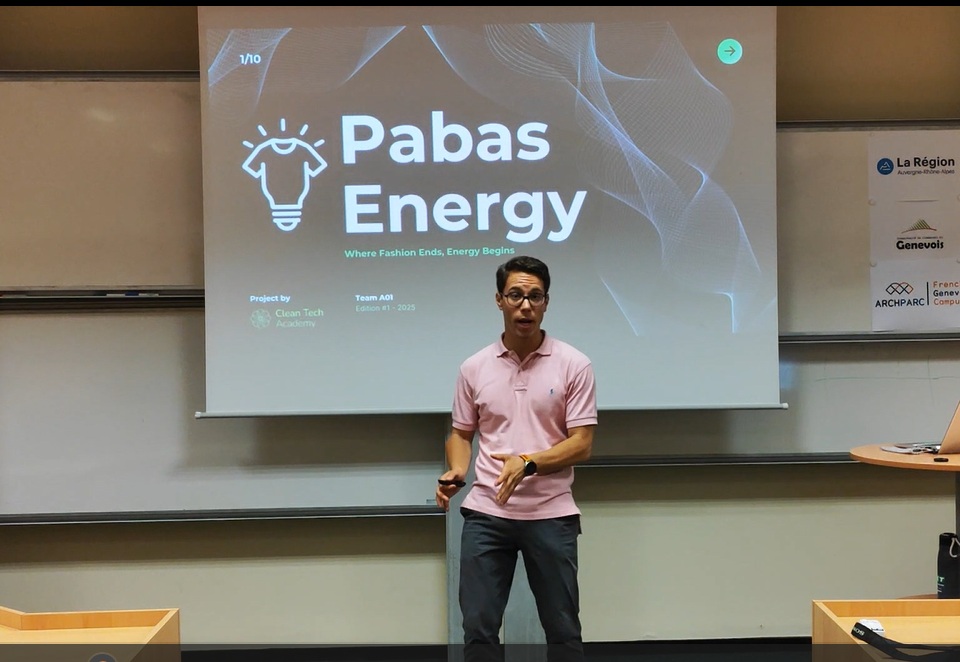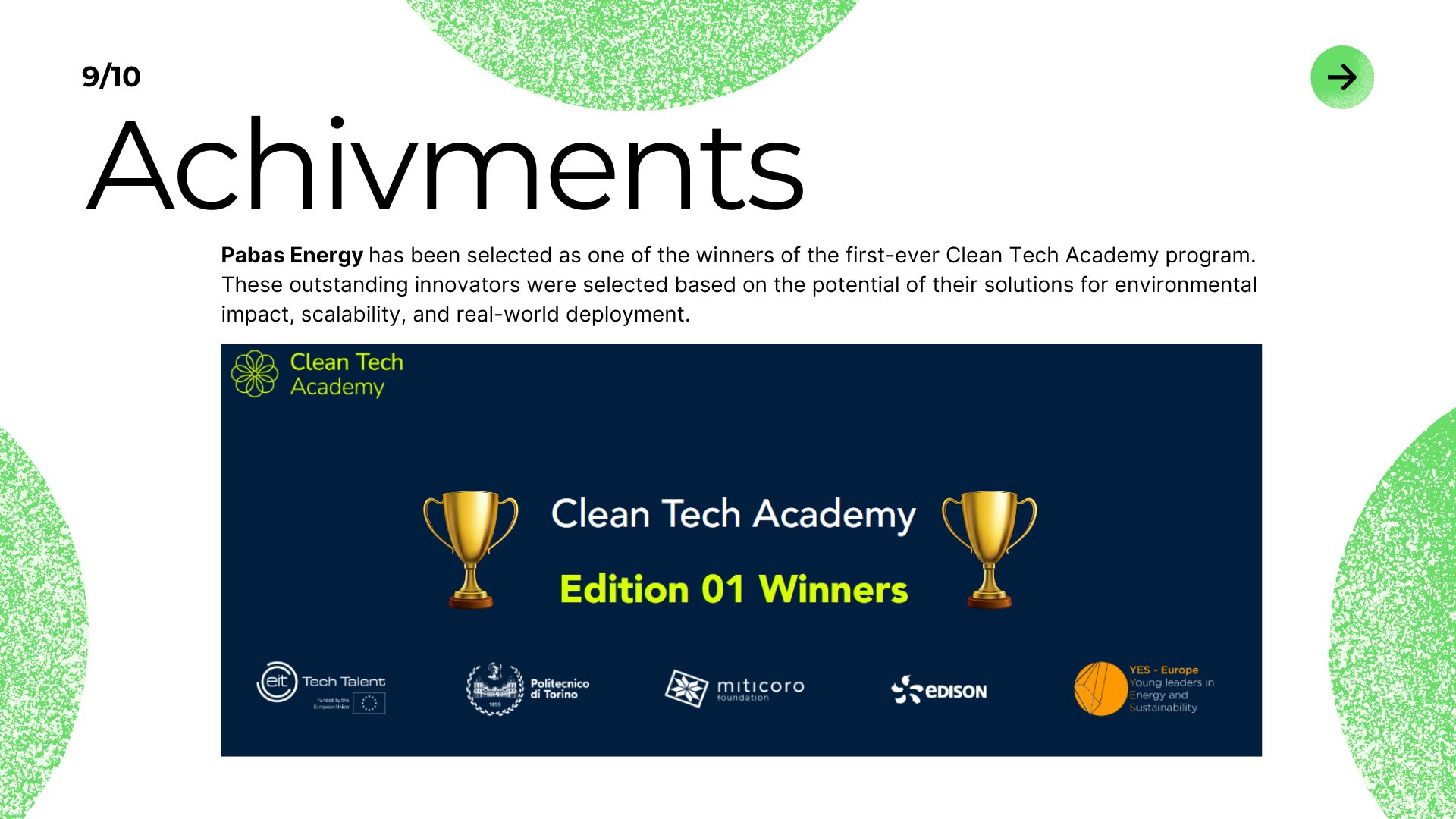
PABAS Energy – Cleantech Academy
Eight weeks in the Cleantech Academy shaping PABAS Energy, a modular system that turns textile and biomass waste into energy, biochar and carbon credits.
Project dossier
- Title: PABAS Energy – Textile and Biomass Co-valorization
- Tagline: Turning waste into energy, carbon credits and learning.
- Period: April – August 2025
- Format: Online challenge backed by the EIT Deep Tech Talent Initiative
- Partners: Cleantech Academy · Miticoro Fondation · PABAS team
- Focus: Modular pyrolysis and gasification concept for textile and biomass residues.
Role & contributions
Team member of PABAS as Project Communicator & Catalyst.
Responsibilities
- Co-developed the PABAS Energy concept balancing feasibility, sustainability metrics and business logic.
- Researched textile and biomass valorisation pathways to estimate yields, emissions and carbon-credit potential.
- Crafted the pitch structure, narrative assets and communication strategy for the final review.
- Coordinated remote collaboration and tool, keeping momentum across time zones and disciplines.
- Tools used: Notion · Miro · Canva · Online collaboration platforms.
- Approach: Agile & Lean thinking to rapid validation and impact analysis.
Motivation
I joined the Cleantech Academy to stress-test my ability to design and communicate a viable cleantech solution under pressure. What looked like a training program became a startup-style sprint that demanded curiosity, focus and stamina.
Methodology
- Context exploration: analysed textile waste streams and biomass co-valorisation pathways.
- Collaborative ideation: developed a modular plant producing syngas, biochar and carbon credits.
- Feasibility framing: merged environmental, technical and economic perspectives for viability.
- Pitch & communication: balanced data clarity with storytelling to make the concept legible.
Team dynamics
- Remote sprints and updates kept delivery tight despite geographic dispersion.
- Regular exercises from CleanTech Academy steered feasibility and sharpened the idea developing process.
Key results
- Selected among the five winning projects of Cleantech Academy 2025.
- Delivered a complete concept note and business case in less than eight weeks.
- Established a roadmap for continued experimentation on the PABAS Energy hypothesis.
Impact
The project proved how educational challenges can seed real innovation, connecting circular economy principles with practical pathways for textile waste valorisation.
Learnings
- Validation is a mindset: honest tests matter more than perfect slides.
- Focused energy beats scattered ambition when working across parallel projects.
- Remote collaboration needs structure, clarity and shared identity to thrive.
- The best innovations begin as working hypotheses that evolve through experimentation.
Gallery

